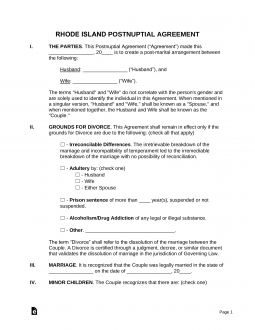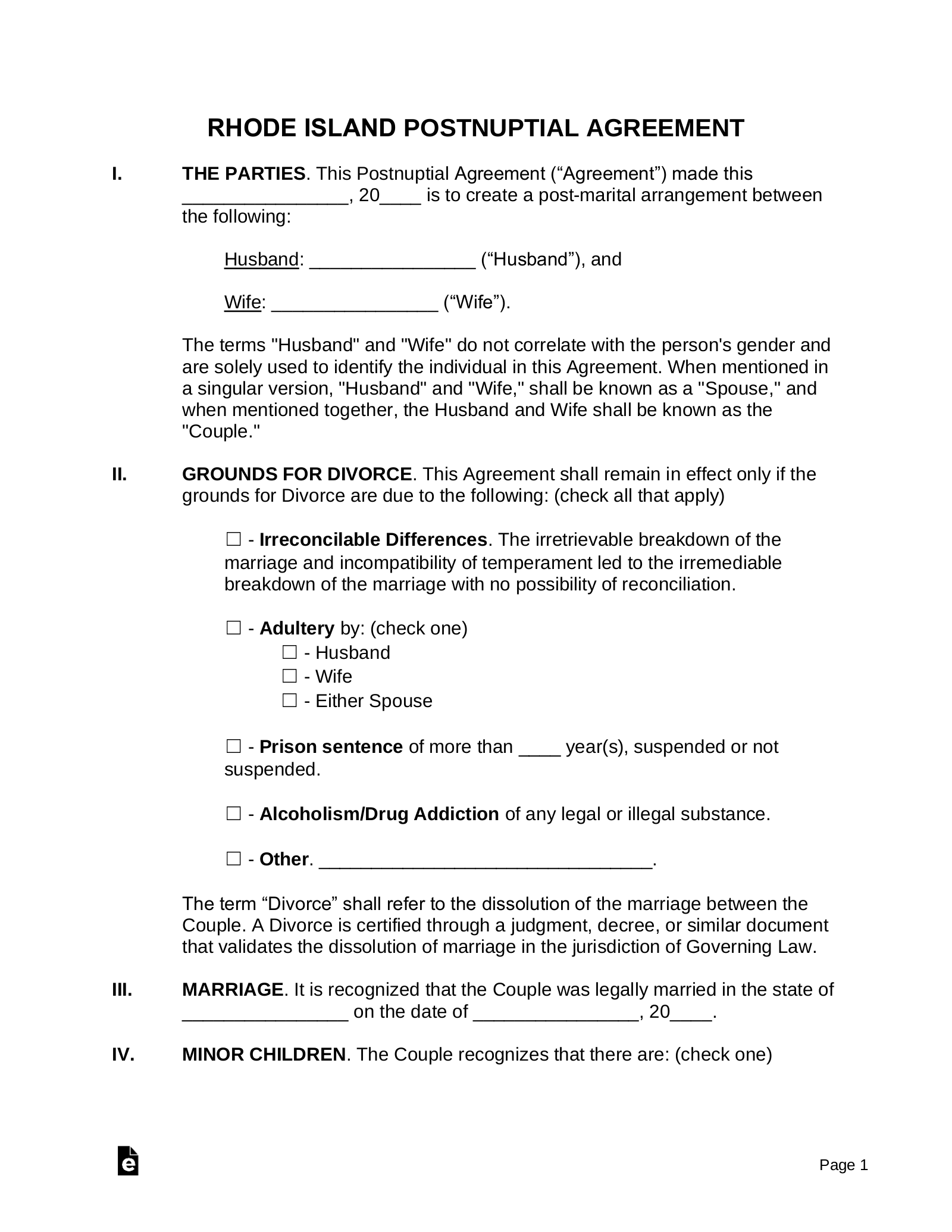Updated March 27, 2024
A Rhode Island postnuptial agreement is a contract between spouses that sets rules for distributing their assets if the marriage ends in divorce or death. Like prenuptial agreements or prenups, postnuptial agreements are tools that couples can use to protect and plan their estates because they traditionally take precedence over the state’s default rules for property distribution.
However, unlike prenuptial agreements (signed before marriage), postnuptial agreements are created after a couple marries. In many states, this means they are subject to different rules. In Rhode Island, state law is unclear on the standards that postnuptial agreements face, meaning couples seeking to create one may want to seek the assistance of a local attorney.
Laws
Child Support: A postnuptial agreement cannot be written to adversely affect a spouse’s ability to collect child support.[2]
Content: A postnuptial agreement may include terms covering the following:[3]
- Rights to Property – Rights, obligations, and the disposition of property;
- Spousal Support – Otherwise known as alimony, the modification or termination of such support.
- Will or Trust – The making of estate language to carry out provisions in the agreement.
- Life Insurance Policy – The ownership rights and disposition.
- Choice of Law – If the couple resides in Rhode Island, they may choose to have the governing law by another state.
- Public Policy – Any decision that is made between the couple that is not against public policy.
Financial Disclosure: The parties are required to give financial disclosures to each other unless voluntarily and expressly waived.[4]
Unenforceable: A postnuptial agreement may only be unenforceable if:[1][4]
- Unconscionable – If the agreement was unconscionable.
- Disclosure – If either party was not provided a fair and reasonable disclosure of another’s financial assets and obligations.
- Involuntariness – If for example the agreement is presented to a spouse in the days before the wedding date.
- Lack of Fairness – If a court deems the agreement to be one-sided.


